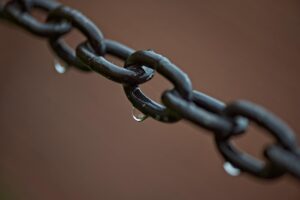Friedrich Merz: Germany’s Political Game-Changer
Let’s Talk About That Washington Trip
You know how German politics used to feel like watching paint dry? Angela Merkel’s careful, no-surprises approach, Scholz’s “let’s not rock the boat” style—it was all very… predictable. But then Merz flew to Washington last month. And man, did things get interesting. The way he talked about defense spending and European leadership—straight talk, no apologies. Suddenly, everyone’s asking: Is this Germany 2.0?
Who Exactly Is This Guy?
Friedrich Merz isn’t your typical politician. Started as a corporate lawyer, climbed the CDU ranks in the 90s—smart as hell but doesn’t suffer fools. People either love him or can’t stand him. There’s no in-between. Conservatives eat up his pro-business stance, while critics say he’s about as subtle as a sledgehammer.
Backstory You Should Know
Born in ’55 in what was then West Germany—grew up in that postwar rebuilding era that shaped so many leaders. Funny thing is, he actually left politics for a while after butting heads with Merkel. Came back swinging in 2021 though. That comeback? Almost as dramatic as a Bollywood plot twist.
Where He Stands On Stuff That Matters
Let me put it this way: if Merkel was all about finding middle ground, Merz plants his flag and dares you to move it. More military spending? Check. Cutting red tape for businesses? Absolutely. And Europe? He’s not waiting for consensus—Germany’s driving the bus now. “Hesitation isn’t a strategy,” he keeps saying. You can’t say the man isn’t clear.
This Ain’t Your Grandma’s German Politics
Remember when German leaders spoke in careful, measured tones? Yeah, Merz didn’t get that memo. His style—blunt, fast, sometimes abrasive—is like switching from classical music to punk rock.
Merkel vs. Merz: Night and Day
Merkel could negotiate for hours to avoid saying anything controversial. Merz? First meeting, he’ll tell you exactly where he stands. Military budget? “We’re hitting 2% tomorrow and going beyond.” EU policy? “Germany’s paying the bills—we’re setting the agenda.” It’s refreshing. Or terrifying. Depends who you ask.
Scholz’s Legacy? Merz Is Erasing It
Scholz moved at bureaucratic speed—every decision weighed, measured, delayed. Merz operates like his hair’s on fire. Energy transition? “Get it done yesterday.” Defense upgrades? “What’s taking so long?” After years of “we’ll think about it,” some Germans are like “Finally!” Others are grabbing the panic button.
That Washington Moment Everyone’s Talking About
His Brookings Institution speech—that’s when it became real. When he said Germany’s done “playing junior partner on security,” you could practically hear jaws dropping back in Berlin. No more Mr. Nice Germany.
How the Press Is Eating This Up
Even Der Spiegel—not exactly Merz fan club—called it “a clarity we didn’t know we missed.” The FAZ went further: “Merkel got respect, Scholz got patience, but Merz? He’s got the room.” Not bad for a guy half the establishment wrote off years ago.
What Merz Actually Wants
At its core? A Germany that stops asking permission. Military powerhouse. Economic engine. Political heavyweight. All of the above.
The “Screw It, Let’s Do This” Doctrine
NATO wants 2% GDP on defense? “How about 2.5?” Bundeswehr needs new gear? “Order it today.” The message is simple: The world’s getting dangerous, and Germany’s done being caught flat-footed.
Walking the Energy Tightrope
Here’s where it gets tricky—pushing renewables hard while keeping industry happy. Can he pull it off? Some unions are side-eyeing his corporate ties. But with energy prices biting everyone, bold moves might be the only option.
Yeah, There Are Problems Too
Not everyone’s on board. Coalition partners are grumbling. Some voters think he’s too much too soon. And let’s be real—that temper of his isn’t helping.
What Regular Germans Think
Polls show about 55% dig the new decisiveness. But nearly half think he’s too combative. And that time he snapped at climate protesters? Not his best moment. Then again, nobody ever accused him of being warm and fuzzy.
How Europe’s Reacting
France’s side-eye could power telescopes. Smaller EU nations are nervous about German dominance. The big question: Can Merz be assertive without turning partners into enemies? His next Paris visit should be… interesting.
So Here’s the Deal
Love him or hate him, Merz is changing the game. After decades of cautious, consensus-driven leadership, Germany’s got a chancellor who’d rather ask forgiveness than permission. Will it work? Too soon to tell. But one thing’s certain—German politics just got its pulse back. And honestly? It’s about time.












